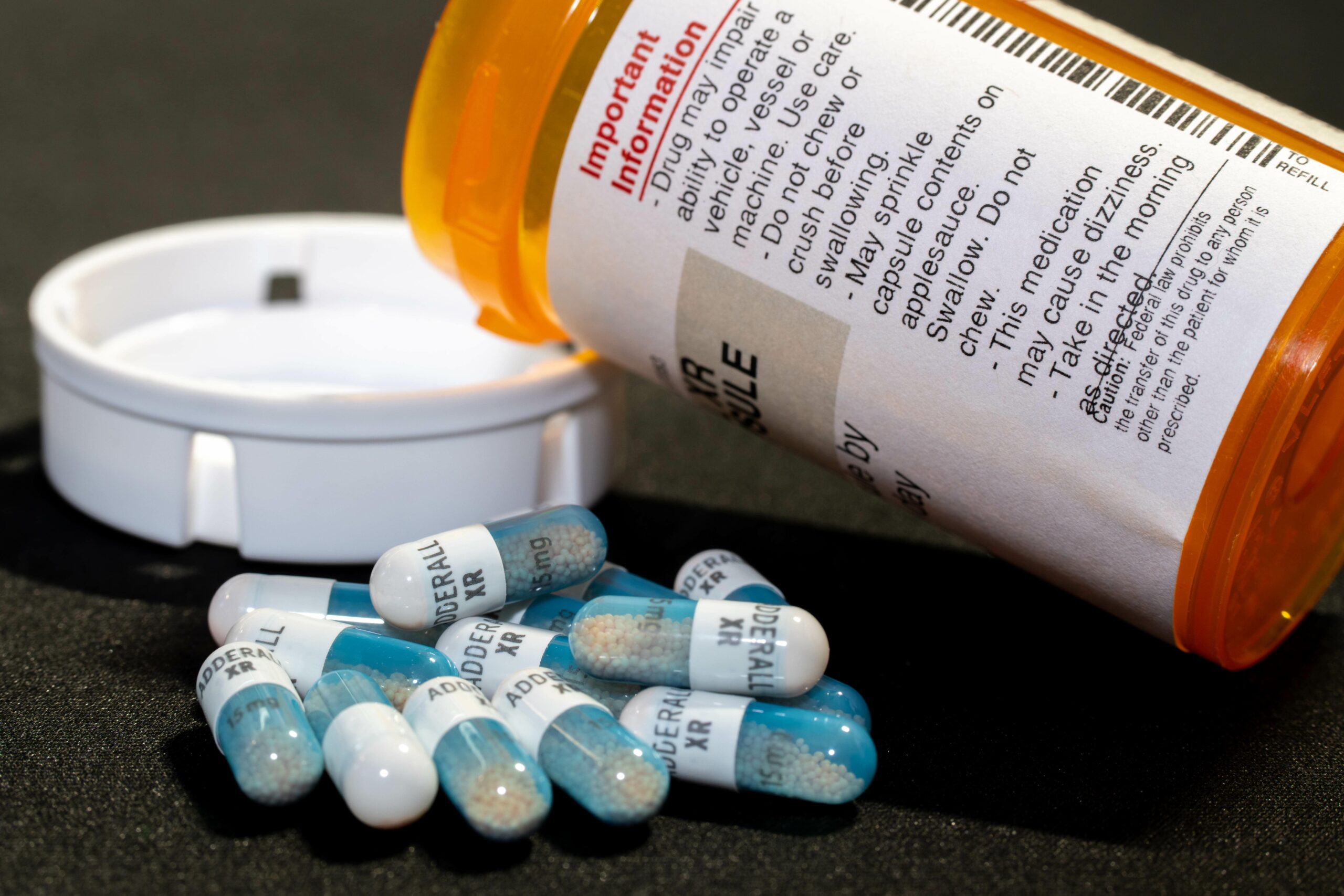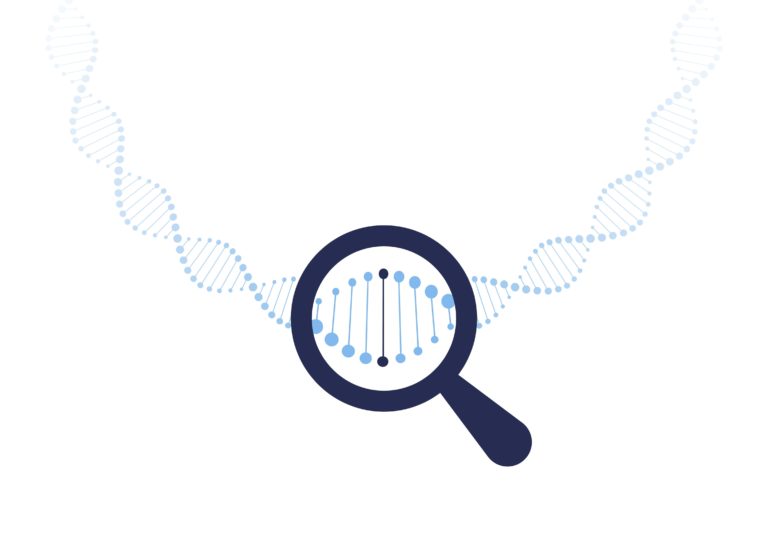If you have certain health concerns, Adderall can be a life-changing medication. But if you abuse this drug, are you aware of the damage that you can inflict on your body and mind? For example, what are the physical effects of Adderall abuse? What is the link between Adderall and amphetamine? Can Adderall cause depression?
About Adderall
Adderall is the brand name of a prescription medication that is most commonly used to treat people who have attention-deficit/hyperactivity disorder (ADHD). It may also be prescribed to people who have narcolepsy.
Adderall contains racemic amphetamine and dextroamphetamine, which means that it is a central nervous system (CNS) stimulant. Common effects of Adderall include elevated heart rate and blood pressure, as well as increased motivation, focus, and concentration.
Can Adderall Cause Depression?
Can Adderall cause depression? Yes, it can. This effect is rare among people who use the medication properly – but those who abuse it may develop symptoms of depression while they are using the drug or as a symptom of withdrawal if they try to stop using it after becoming addicted.
As is the case with virtually every prescription medication, Adderall can cause certain distressing side effects even when a person follows their doctor’s advice when taking this medication. However, the likelihood of negative effects can increase considerably if a person takes the drug more frequently or in greater doses than recommended, or when they use the drug for illicit purposes.
In addition to depression, the possible negative effects of Adderall abuse include:
- Loss of appetite
- Headache
- Dizziness or lightheadedness
- Insomnia
- Dry mouth
- Mood swings
- Anxiety
- Agitation
- Irritability
- Psychosis
- Seizure
A 2015 article from Texas A&M Health reported that Adderall can also exacerbate symptoms of pre-existing mental health concerns such as anxiety disorders, depressive disorders, bipolar disorder, and schizophrenia.
What Are the Symptoms of Depression?
Now that you know the answer to the question, “Can Adderall cause depression?” you should also know how to tell if you or someone that you care about has become depressed. It is important to understand that depression is a serious mental health disorder. It is not merely a synonym for sadness, nor is it equivalent to a temporary case of “the blues.”
Someone who develops a depressive disorder will experience symptoms that can undermine their ability to function at work, in school, or in other important areas of their life. Depression can lead to conflicts in relationships, job loss, physical health concerns, and a significant decrease in their overall well-being.
Common symptoms of depression include:
- Pervasive, overwhelming sadness
- Problems with focus, concentration, and memory
- Abnormal sleep patterns (either hypersomnia or insomnia)
- Appetite change and resultant unintentional weight gain or loss
- Fatigue and exhaustion
- Lack of motivation
- Recurrent thoughts of death and dying
- Suicidal ideation
Many people who struggle with depression turn to alcohol or other drugs in an attempt to numb their emotional pain. In addition to worsening their depression, this maladaptive behavior can also lead to myriad additional physical and mental health concerns.
What Are Other Potential Causes of Depression?
Substance abuse (including the misuse of Adderall) is one of several risk factors for depression. Other characteristics and circumstances that have been associated with an increased risk for developing a depressive disorder include:
- Personal history of other mental illnesses
- Family history of substance abuse, addiction, and/or mental illness
- Untreated trauma
- Exposure to overwhelming stress or pressure
- Insufficient coping skills
- Lack of appropriate personal support
- Certain genetic traits
How Are Addiction and Depression Treated in Nashville, TN?
People who struggle with both a substance use disorder (addiction) and a mental health disorder such as depression are described as having dual diagnosis. Given the ways that mental illness and addiction can affect each other, it is important that people who have dual diagnosis receive comprehensive care that can address the full scope of their needs.
Certain prescription medications can help people who have depression and some types of addiction:
- Antidepressants such as selective serotonin reuptake inhibitors (SSRIs) and serotonin and norepinephrine reuptake inhibitors (SNRIs) have proved to be effective at alleviating some symptoms of depression.
- Medications such as methadone, buprenorphine, and naltrexone can ease the cravings and other distressing symptoms that a person may experience when they try to stop using a drug that they have become addicted to.
During therapy sessions, people can learn to manage symptoms of addiction and depression that are not addressed with medication. Therapy can also help people understand the influences that may have led to their struggles with addiction and depression, and make the behavioral changes that will support their successful recovery.
At Arbor Wellness, dual diagnosis patients may receive treatment at one or more of the following levels:
- Residential treatment
- Partial hospitalization program (PHP)
- Intensive outpatient program (IOP)
Depending on each patient’s needs and goals, their dual diagnosis treatment at our center may include services such as:
- Medication-assisted treatment (MAT)
- Individual psychotherapy
- Group therapy sessions
- Genetic testing
- Neurofeedback therapy
- Red light therapy
- EMDR therapy
- Biosound therapy
- Spravato treatment
- Somatic therapy
Find Depression Treatment in Nashville, TN
If you are struggling with addiction, depression, or another mental or behavioral health concern, Arbor Wellness is here to help. Our treatment center in Nashville, Tennessee, is a safe and supportive place where you can receive personalized care from a team of dedicated professionals.
We offer multiple programming options and an array of therapies, and we work diligently to ensure that each patient is treated in a dignified and respectful manner. To learn more or to schedule a free assessment, please visit our admissions page or call us today.










